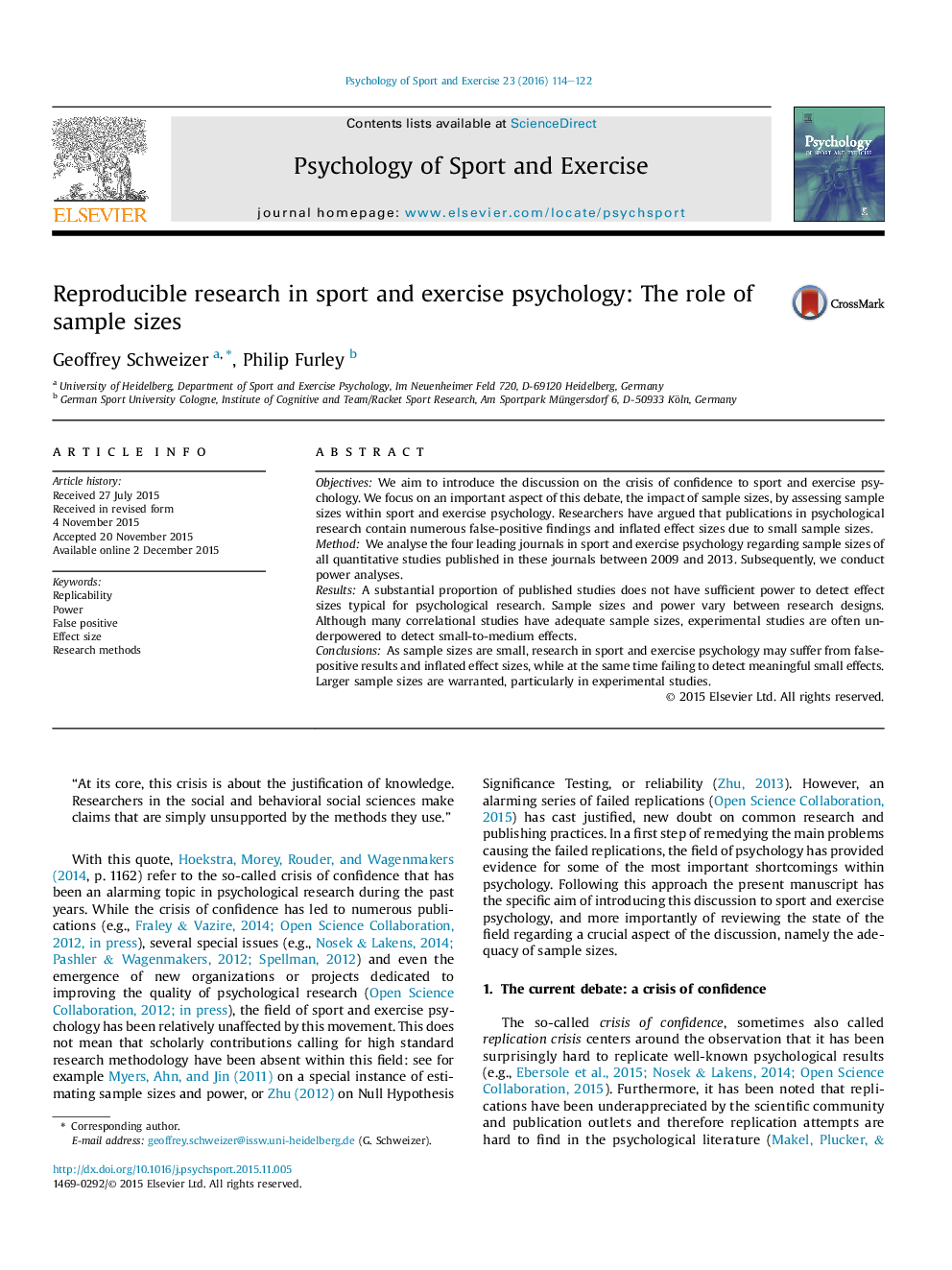| Article ID | Journal | Published Year | Pages | File Type |
|---|---|---|---|---|
| 894241 | Psychology of Sport and Exercise | 2016 | 9 Pages |
•We introduce the “crisis of confidence debate” to sport and exercise psychology.•We assess sample sizes and power in sport and exercise psychology.•Many studies in sport and exercise psychology lack sufficient power.•Correlational studies have larger sample sizes than experiments.
ObjectivesWe aim to introduce the discussion on the crisis of confidence to sport and exercise psychology. We focus on an important aspect of this debate, the impact of sample sizes, by assessing sample sizes within sport and exercise psychology. Researchers have argued that publications in psychological research contain numerous false-positive findings and inflated effect sizes due to small sample sizes.MethodWe analyse the four leading journals in sport and exercise psychology regarding sample sizes of all quantitative studies published in these journals between 2009 and 2013. Subsequently, we conduct power analyses.ResultsA substantial proportion of published studies does not have sufficient power to detect effect sizes typical for psychological research. Sample sizes and power vary between research designs. Although many correlational studies have adequate sample sizes, experimental studies are often underpowered to detect small-to-medium effects.ConclusionsAs sample sizes are small, research in sport and exercise psychology may suffer from false-positive results and inflated effect sizes, while at the same time failing to detect meaningful small effects. Larger sample sizes are warranted, particularly in experimental studies.
